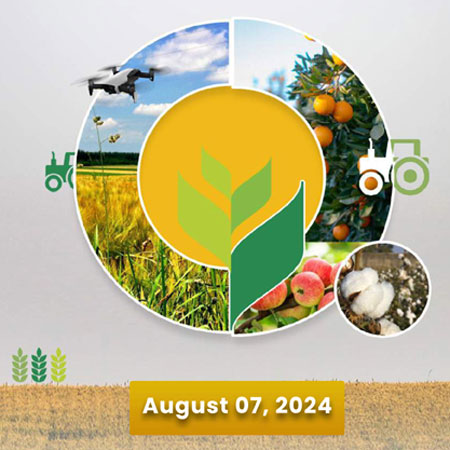Welcome to the full Episode 6 of Sustainability Karma, India’s first and only talk show on sustainability on All India Radio.
In this episode of Sustainability Karma, Ajay Shriram, Chairman and Senior MD, DCM Shriram, talks about the increased awareness of climate change, carbon neutrality, circular economy, and India’s net-zero target of 2070 and how businesses are taking steps to adopt sustainable practices, and his blueprint for achieving Sustainable Development Goals (SDGs).
He says that various factors contribute to this increased awareness, including the visible impacts of climate change, potential legislation mandating disclosure by public companies, encouragement for renewable energy adoption and extensive media coverage. Businesses recognise the self-interest in adopting sustainable operating models. The second step involves industries outlining specific measures to achieve the goals set by Prime Minister Narendra Modi.
Saying that different sectors such as fertilisers, automobiles, chemicals, and food processing, assess their energy intensity, import reliance, and end-use impacts, the veteran industry leader adds that these detailed studies guide collaborative efforts to address challenges collectively. At the individual company level, major corporations evaluate their carbon footprint, water consumption, energy sources, and recycling initiatives, setting ambitious targets for sustainable practices. Several companies have publicly declared commitments, putting indirect pressure on others to follow suit.
He says that DCM too has embraced a holistic approach, focusing on water security, biodiversity, sustainable agriculture, green energy, energy conservation, and circular economy principles. Their strategic vision incorporates climate change mitigation into the business model itself. DCM’s efforts in improving environmental, social, and governance (ESG) performance have been recognised with awards. The company is positioned among the top 7% most sustainable global chemical companies, reflecting its commitment to sustainability.
Talking about Sustainable Development Goals (SDGs), Mr Shriram acknowledges the global and Indian challenges in achieving these goals. India, home to one-sixth of humanity, plays a crucial role in the success of the 2030 agenda. The country’s commitment to SDGs aligns with its national development agenda, emphasizing inclusivity and shared progress. However, achieving all SDGs poses challenges, with some goals being overly ambitious. To expedite SDG achievement, he suggests focusing on more effective targets through economic cost-benefit analysis. Prioritizing targets can maximise the impact of resources, emphasising the need for evidence-based policy decisions.
Saying that each rupee spent evenly across all 169 SDG targets achieves Rs 7 of social benefits, he emphasises that if we focus on just the 40 best targets, each rupee spent would deliver about Rs 21 of social benefit.
Regarding India Inc.’s role in G20 deliberations, he believes that G20 should primarily address development and economic issues. India, with its vibrant economy and aspirational consumer base, can strengthen partnerships between businesses in the world’s largest economies. The G20 presidency presented an opportunity for India to represent the Global South and advocate for resource and technology transfer.
Mr Shriram emphasises the importance of collaboration and aligning G20 efforts with the SDGs to address global challenges. The reliability of global supply chains, particularly in the context of non-tariff barriers, becomes a critical consideration for businesses worldwide. The alignment of G20 with the SDGs can foster sensitivity and cooperation, benefiting people globally.
Top Opinions











